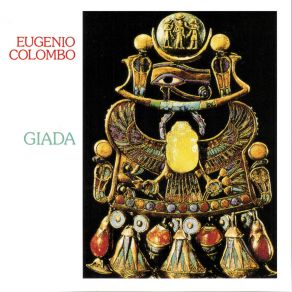Giada
Download links and information about Giada by Eugenio Colombo. This album was released in 1990 and it belongs to Jazz genres. It contains 13 tracks with total duration of 55:51 minutes.

|
|
|---|---|
| Artist: | Eugenio Colombo |
| Release date: | 1990 |
| Genre: | Jazz |
| Tracks: | 13 |
| Duration: | 55:51 |
| Buy it NOW at: | |
| Buy on iTunes $8.99 | |
Tracks
[Edit]| No. | Title | Length |
|---|---|---|
| 1. | Tarlo armonico | 5:42 |
| 2. | Zodiaco | 8:40 |
| 3. | Caffè arabo: allegretto | 3:35 |
| 4. | Caffè arabo: andante | 5:39 |
| 5. | Caffè arabo: allegro molto | 2:40 |
| 6. | Echi di cuore | 4:50 |
| 7. | Giada | 2:26 |
| 8. | Sirene | 2:57 |
| 9. | Ricercato | 5:35 |
| 10. | Rugiada | 5:38 |
| 11. | Daga | 2:13 |
| 12. | Secondo fine | 2:22 |
| 13. | Cialtroni | 3:34 |
Details
[Edit]Giada is a loosely configured set of composer and saxophonist Eugenio Colombo's stray pieces, written for various commissions and combinations of musicians but never recorded. They range from freaky bebop blues works that are peppered with electronics to classical works for string trio and alto saxophone to flute and piano duets to solo flute and/or sampler pieces. The album was arranged by taste rather than by chronology, so it really comes off as the most delightful kind of mixed bag. "Tarlo Amonico" opens the record. It's bluesed-out alto saxophone plays at a fairly furious pace and is accompanied and augmented by a sampler with everything in it from Jew's harp to Tuvan overtone (throat) singing. There's a bit of film noirish intensity mixed with a world music-type of exoticism that works surprisingly well — especially when the cricket sounds chirp in. there's a gorgeous string trio for violin, double bass, and cello written as a three-part suite called "Caffe Arabo." Here, North African melodies, Sicilian folk melodies, the strange minor key phrasings of Domenico Scarlatti, and the transposition of Gregorian chant enter into an unholy alliance that produces a beautiful work of classical music. Another work for string trio with alto saxophone, "Ricercato," stands in sharp contrast. While there is certainly a melody at work in the piece, it is played so unconventionally by the strings — it is hammered and pizzicatoed out — that the entrance of the saxophone is a grounding experience. The saxophone is tonally stretched to the breaking point and is played multiphonically, adding to the dense otherworldliness of the tune. The set ends with a gorgeous duet between Colombo playing soprano and pianist Francesco Scala. Its late-night Gershwin-esque lilt is a settling and soothing lullaby for this adventurous, wondrously diverse, and dimensionally sophisticated album.